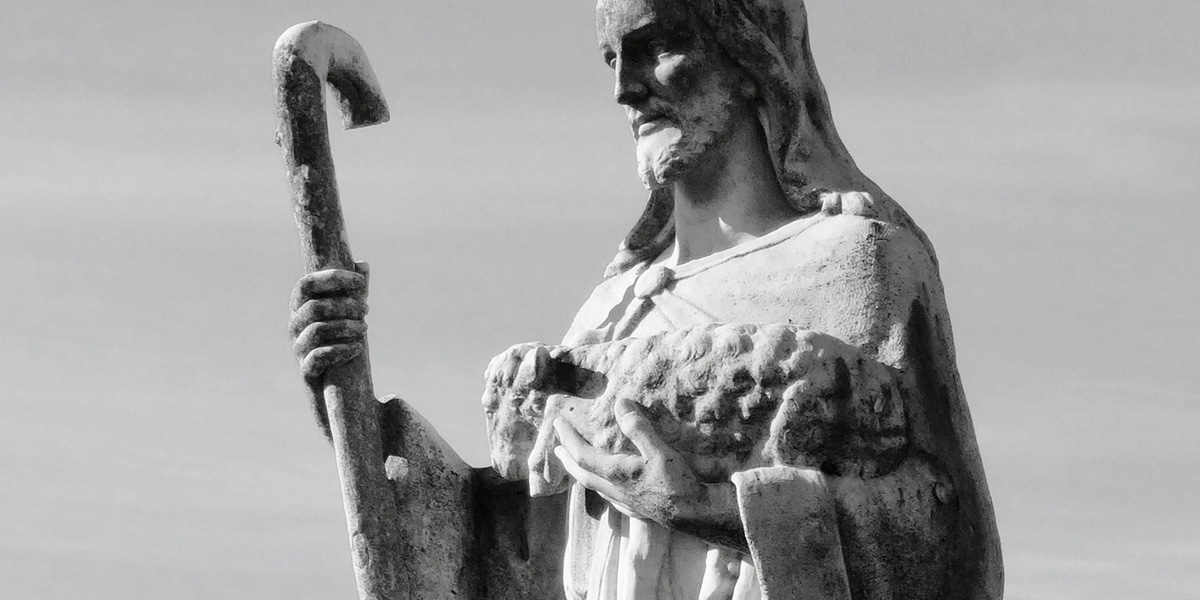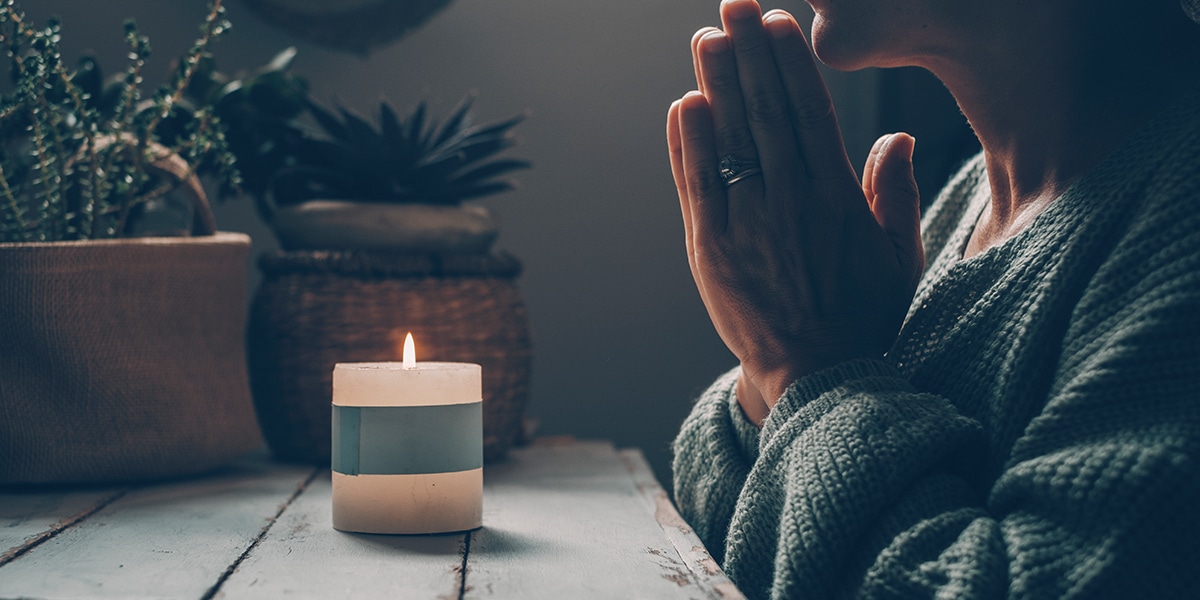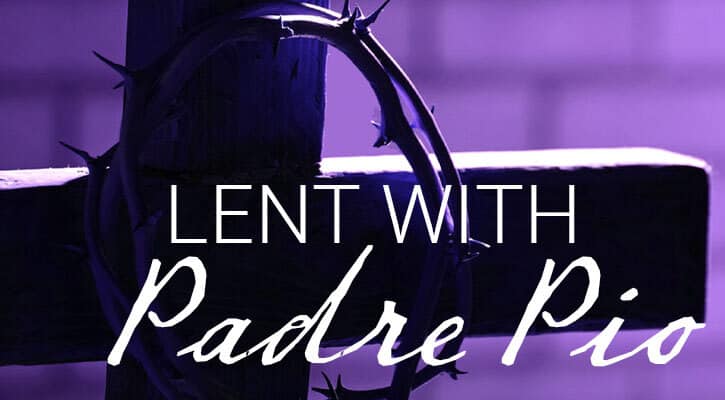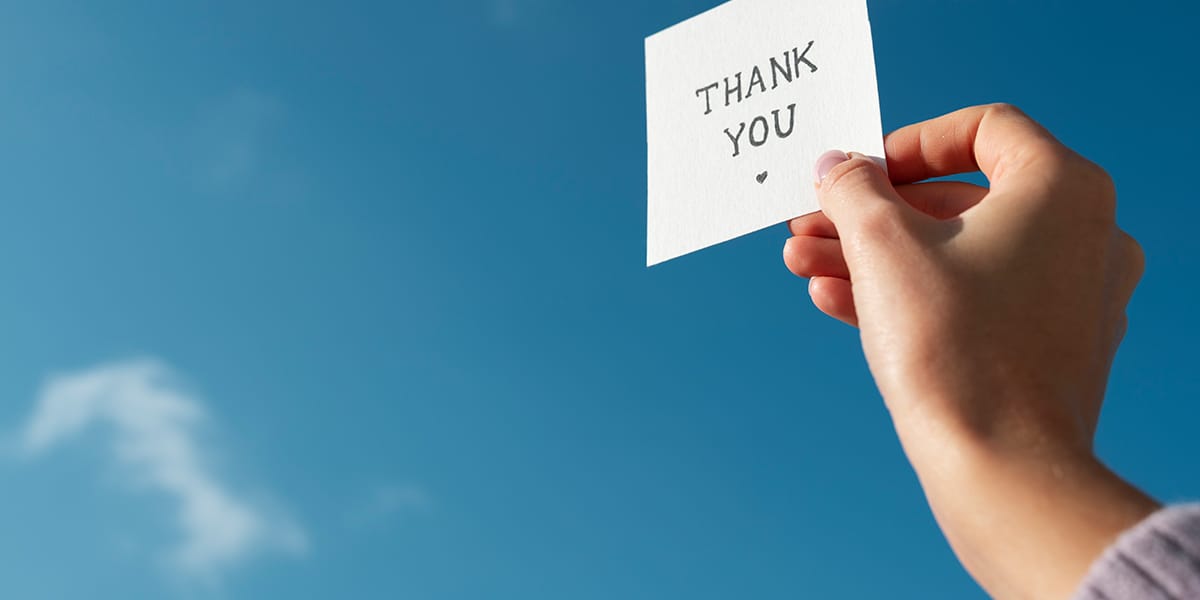While watching the evening news, I realized how my ignorance of Islam hindered me as a United States citizen and as a Catholic.
Becoming a Roman Catholic deacon led me into Islam, not by embracing Islam itself, but by embracing it as a sign of the Other whom the deacon has come to serve. The path has been so full of surprises that I can truly say, “God writes straight with crooked lines.”
Yet it’s not only as a deacon that I speak of Islam. I also speak of it as an ordinary American who one day realized that he knew nothing about this “foreign” religion: nothing of its holy book, the Quran, nothing of its teachings, the people who embraced it, their languages and cultures or even the countries where Muslims live. For example, I couldn’t at that time have found Iraq on the map.
The change began in February 1991. I had been watching with horror televised reports of our first Iraq war, Desert Storm. As a recently baptized (1983) Catholic Christian, I had absorbed Thomas Merton’s writings on nonviolence; I had been inspired by the U.S. bishops’ 1983 pastoral letter The Challenge of Peace. I also felt deeply that Desert Storm was portrayed unjustly: as a triumphant exercise of American goodness over the darkest evil and a war that had been cleansed of its violence through “surgical strikes” and “smart bombs.”
Educating Myself About Islam
Much as I wanted to, however, I could not demonize the war makers. What restrained me was a painful consciousness that I was complicit in my ignorance. This war had been allowed to go forward, I believed, because people like me, who ought to have known something about Islam and the Muslim world, knew nothing. Because of that, we were easy victims of the propaganda that made killing Iraqis, both soldiers and civilians, a smoothly justifiable action, almost a sacred duty.
To ease my conscience, I said out loud as my wife, Peggy, and I watched videos of American missiles presumably hitting precisely focused Iraqi targets (while avoiding all civilians): “I’m going to learn Arabic.” I said these words a bit braggingly, as if just saying them aloud would make a difference. But I said them fearfully as well, because something warned me that fulfilling this promise would change my life.
I delayed as long as I could. But finally, one fall day in 1993, my excuses and evasions dried up. When I began a course in Arabic at Rochester’s Islamic Center, I entered a different world. As I had feared, that short step changed me.
I became different, first of all, because within the space of five minutes I left behind a world where Muslims had been a scary, undifferentiated mass and entered a new world where Muslims were human beings with distinct names, bodies, personalities and histories. Moving beyond a world of stereotypes, I entered flesh-and-blood human reality.
The change began once I had taken off my shoes, put them in a cubbyhole and padded upstairs to the classroom. From knowing no Muslims for the first 50 years of my life, I suddenly knew 30 class members gathered on that fall day to learn Arabic.
Only one fifth of Muslims are native Arabic-speakers. The rest have to learn their faith’s language slowly and painfully, just as I was doing. My new Muslim friends and I were suddenly linked together in a common struggle. Besides sharing a desire to learn, we shared a common humanity.
A Changed Understanding of God
In a related but different way, a way that took longer to develop, I too changed, especially in my understanding of God. That understanding had perhaps been too sure, perhaps even complacent. Now God began to overwhelm me with the breadth of God’s compassion for all God’s human creatures: not only Christians but also those who experienced God’s presence through a faith both different from mine and often in conflict with it.
I gradually desired not only to learn Arabic grammar but also to immerse myself in the Quran, the Holy Scripture of Islam. At this point, I no longer feared change but rather that change would not go deep enough.
Once my Arabic class finished, I timidly asked the imam, Dr. Mohammed Shafiq, if I could study the Quran with a Muslim, explaining that I was not seeking to convert to Islam, that I had come to the Center out of what I saw as my baptismal calling to be present to the Other. To study the Quran meant deepening my own faith, and to do so not by triumphantly discovering the Quran’s supposed “faults” or “insufficiencies,” but by entering as fully as possible into the experience of people for whom the Quran is the vehicle of God’s presence.
Dr. Shafiq readily accepted my request. As the Quran says, “Let there be no compulsion in religion” (Sura al-Baqarah 2:256). For Muslims, religious conversion is a matter of individual conscience, not of compelled assent. He and I had by then become friends. He knew that I respected Islam and Muslims. For him (and for the great majority of the Muslims I have met in the years since), that was enough. Once Dr. Shafiq found a teacher for me, my immersion began.
Siddiq, my teacher, and I spent Saturday afternoons sitting cross-legged at the back of the prayer area at the Islamic Center, working through the Quran word by word, line by line. He drilled me on correct pronunciation and on melodious phrasing. In time and after considerable effort, I could recognize the great beauty of the Quranic voice, which for Muslims embodies a divine reality analogous to Christ’s presence in the Eucharist.
The Historical and Moral Context
Siddiq also insisted on clarifying the historical context of Quranic verses. Because they were revealed to the Prophet Mohammed between 610 and his death in 632, this context ranges from the rejection by Mecca’s elite of these revelations to Mohammed’s triumphal, nonviolent return to that city two years before his death.
In those years, he consolidated the faith among most Arabs. Mohammed always considered Islam not a new religion but the true reform of the only religion, the ancient, primordial religion of monotheism. Its two main tenets are worship of God alone and love of neighbor. Siddiq’s presentation of Mohammed’s achievement went beyond history by conveying the supreme importance of Mohammed as the moral exemplar for Muslims. Just as Christians are urged to imitate Christ, Muslims are urged to imitate the Prophet.
The key difference is that, in imitating Christ, Christians are entering into the very life of God. In imitating Mohammed, Muslims are conforming their behavior to that of the most perfect human being who ever lived: “perfect” not in an inhuman, unrealistic, cold-blooded sense, but in the sense of “authentic,” true to the best in human nature. Christ’s injunction, “Be perfect as your heavenly father is perfect,” catches this understanding.
Grasping clearly the Islamic moral pattern, I realized how some of my Muslim acquaintances seemed to do very well while others seemed to fall short. I was not shocked or scandalized by this disparity because I was now seeing Muslims as people, with just as many faults and imperfections as I or other Christians have. Muslims were neither gods nor demons, but rather children of God, just like myself.
I gained confidence in the rightness and value of my immersion in Islam after absorbing Thomas Merton’s correspondence with the Pakistani Sufi Abdul Aziz. (Sufis are Muslim mystics.) Merton’s openness to Islam deepened his Christian faith instead of diluting, confusing or weakening it.
The Way of All the Earth, by Notre Dame theologian John S. Dunne, persuaded me that “passing over” to the faith of the Other was a necessary step in returning to my own faith with fresh and open eyes.
Sharing Those Discoveries
Growing confidence awakened my desire in the mid-1990s to let other Christians know what I had learned about Muslims and their religion. I longed to challenge stereotypes of both that my fellow Christians had. I wanted them to know that Muslims were just as human as they were, no more and no less; that Islam carried the same message Jesus did when he affirmed the key teaching of the law and the prophets (to love God and neighbor); and that immersing oneself in Islam, as I had done, could enhance one’s Christian faith. Through my writings and talks to church groups, I shared these convictions.
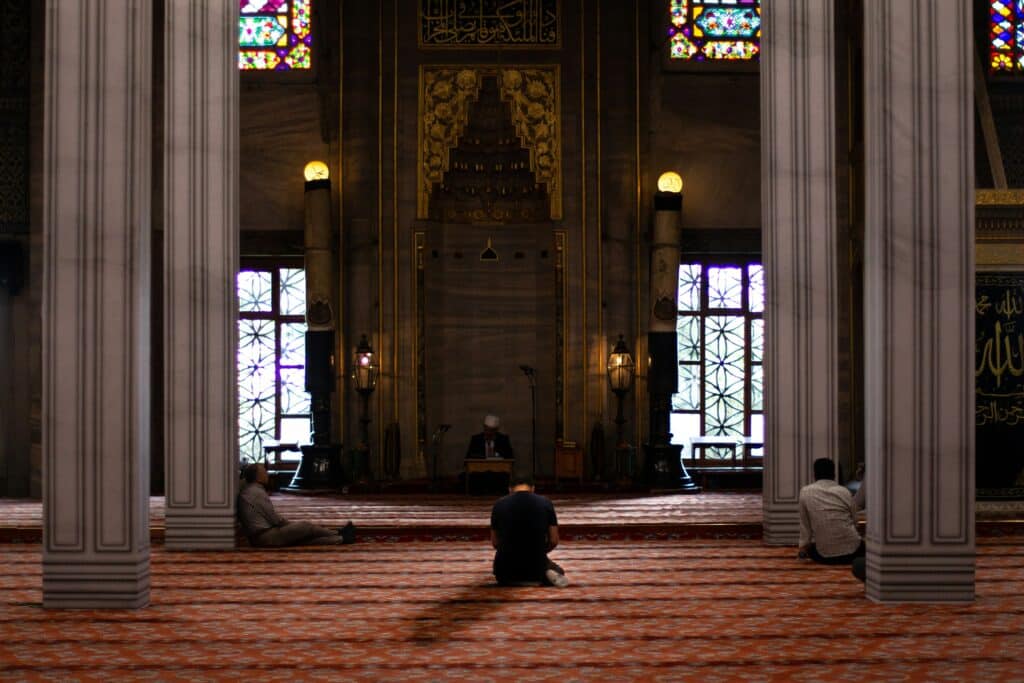
“Isn’t Islam a religion of violence?” she asked. “No,” I responded. “Islam has nothing to do with violence. In fact, it is just like Christianity in asserting love of God and neighbor.”
My growing confidence about my immersion and my speaking about it reinforced another inner current, a desire to find a way to express my baptismal commitment to serve the Other more fully and rigorously. The permanent diaconate seemed to offer such an opportunity, and in 1999 I began my formation in the Diocese of Rochester, New York.
This challenging and liberating process highlighted the risk of identifying with Christ the servant. I also experienced, however, the joy of finding myself in solidarity with the Other, looking at the world through his or her eyes, in order that I might see better through my own.
A Rude Awakening
During my last year of formation, my relations with Islam and the diaconate were forever changed by the events of September 11, 2001.
That beautiful day, suppressed hostilities smoldering on and off for centuries between the Muslim world and the West erupted in flame, smoke and murder. Although my original step toward Islam had been a response to violence, the scale of the violence darkening the sky on September 11 dwarfed the dust clouds of Desert Storm.
No longer could I speak about Islam in theological terms to audiences who listened appreciatively, as if to a well-meaning professor. I now had to deal directly with my audience’s fear and anger. People who used to listen quietly as I explained Islam’s Five Pillars now could barely restrain themselves before jumping up to ask, “But what about the terrorists?”
My immersion in Islam and solidarity with Muslims raised very direct questions from my friends: Was I a simple dupe? Had I gone over to the “enemy”? I then realized that my immersion had not gone deep enough, that I had been satisfied with experiencing and describing only Islam’s personal and theological challenges and benefits. I had not fully understood the social and political consequences of where this path was leading.
After September 11, those consequences loomed tragically. I saw how ignorance of Islam and of Muslims fueled hatred and scapegoating by otherwise well-meaning Christians (and other non-Muslims). I saw how certain forces can take advantage of people’s ignorance and panic to manipulate them for political advantage. Crossing over the Islamic Center’s threshold had led me into the angry divisiveness that even today threatens to shred national identity.
The Path Forward
Yet I have never felt lost or unsure of the path Baptism pointed out for me. My own strength or courage has contributed little to this security. My struggle with anti-Muslim prejudice since September 11 has sustained my commitment to interfaith dialogue that many people in the Rochester area and throughout the country share.
These good people include Muslims and Christians of all denominations, working hard and peacefully to bring understanding amid the shouts and clamors of those who see Islam as a monolithic force spreading out over the United States like a giant cloud from J.R.R. Tolkien’s Mordor. But the most sustaining effort for me has been that of my own bishop, Matthew Clark, who in 2003 helped create a formal accord of solidarity with Rochester’s Muslims. This was the first such accord between Catholic and Muslim communities in the United States, and perhaps in the world.
Because of it, I and others could face with some firmness, equanimity and even compassion the hostility of people for whom Islam represented incarnate evil. We could respond pastorally to those who were bewildered by irresponsible media reporting.
As a deacon, I now see myself immersed not so much in Islam as in our national psyche’s current agony as we battle our Jekylls and Hydes. Muslims are not the only people being scapegoated. Migrant workers in this country likewise face fierce scapegoating. African-Americans and Native Americans have long suffered scapegoating and still do. Public employees and union members are now experiencing it.
Who is next? As a deacon, I have to stand in solidarity with all such victims, all such Others or with whoever will next be made into an Other. Baptism has led me through Islam on the road to a Jerusalem where many besides Muslims are being crucified. I have to walk that road toward them all. Not all such stops along that road are scary ones. The other day I received a call from a Catholic woman whose adult son had just announced that he was converting to Islam. The woman sounded hurt, confused and frightened.
“Isn’t Islam a religion of violence?” she asked. “No,” I responded, “Islam has nothing to do with violence. In fact, it is just like Christianity in asserting love of God and neighbor.” Then I asked the woman, “Am I right in guessing that your son has been brought up in a caring home and that he has been taught good values?”
“Yes,” she answered. “Well,” I said, “you and I are sad about his change of religion and we wish it hadn’t happened. But we can have hope that he’ll be associating with Muslims just like himself. They are far and away the great majority, just as good people are far and away the great majority among us Catholics. Let’s let God do the rest.”




